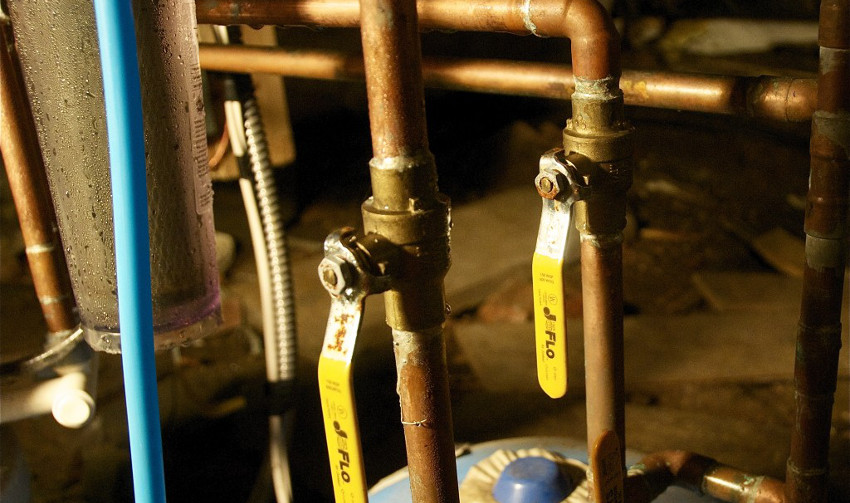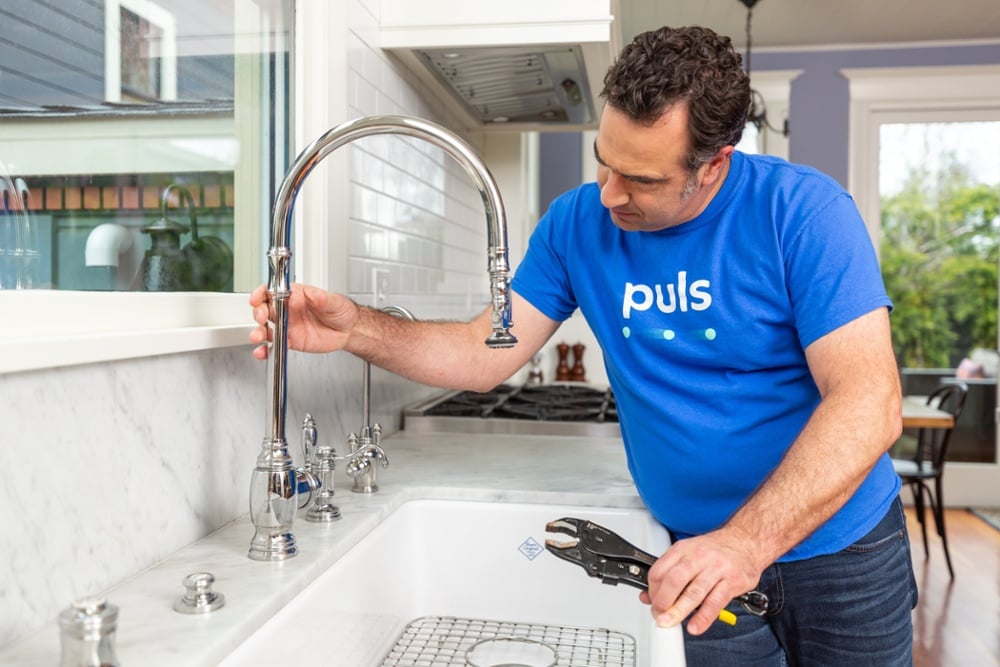Here below yow will discover a bunch of excellent information around Why Do My Plumbing Pipes Make A Knocking Noise.

To detect loud plumbing, it is essential to determine initial whether the undesirable noises occur on the system's inlet side-in other words, when water is transformed on-or on the drain side. Sounds on the inlet side have actually varied causes: excessive water stress, used valve and tap components, poorly linked pumps or other devices, inaccurately placed pipe fasteners, and plumbing runs having a lot of tight bends or various other constraints. Noises on the drainpipe side normally come from inadequate place or, as with some inlet side sound, a design including limited bends.
Hissing
Hissing noise that takes place when a faucet is opened a little typically signals excessive water stress. Consult your regional public utility if you presume this problem; it will certainly be able to tell you the water stress in your location and can mount a pressurereducing valve on the incoming water pipe if essential.
Thudding
Thudding noise, usually accompanied by trembling pipes, when a faucet or home appliance valve is shut off is a problem called water hammer. The noise and also vibration are brought on by the reverberating wave of stress in the water, which unexpectedly has no place to go. Often opening a valve that discharges water quickly into an area of piping including a constraint, elbow joint, or tee installation can generate the exact same problem.
Water hammer can usually be cured by setting up fittings called air chambers or shock absorbers in the plumbing to which the issue shutoffs or taps are linked. These tools allow the shock wave produced by the halted circulation of water to dissipate in the air they consist of, which (unlike water) is compressible.
Older plumbing systems might have brief vertical areas of capped pipeline behind walls on tap competes the same objective; these can eventually full of water, lowering or damaging their performance. The cure is to drain the water supply entirely by shutting off the primary water system shutoff and opening all taps. After that open up the major supply valve as well as shut the taps one at a time, starting with the faucet nearest the shutoff and also finishing with the one farthest away.
Chattering or Shrieking
Intense chattering or shrieking that happens when a shutoff or tap is turned on, and that normally goes away when the installation is opened fully, signals loose or faulty internal parts. The option is to change the shutoff or tap with a new one.
Pumps and home appliances such as washing devices and dishwashing machines can move motor sound to pipelines if they are poorly attached. Connect such items to plumbing with plastic or rubber hoses-never rigid pipe-to isolate them.
Other Inlet Side Noises
Creaking, squeaking, scraping, snapping, as well as touching generally are caused by the expansion or contraction of pipes, typically copper ones providing warm water. The sounds happen as the pipelines slide against loose fasteners or strike neighboring residence framing. You can commonly pinpoint the place of the issue if the pipelines are exposed; just comply with the noise when the pipelines are making noise. Probably you will certainly uncover a loose pipe wall mount or a location where pipes lie so near to flooring joists or other mounting items that they clatter versus them. Attaching foam pipeline insulation around the pipes at the point of get in touch with must correct the trouble. Make certain bands as well as hangers are safe as well as supply ample assistance. Where feasible, pipeline bolts must be affixed to substantial architectural aspects such as foundation walls instead of to framing; doing so lessens the transmission of vibrations from plumbing to surfaces that can amplify and also move them. If affixing bolts to framing is unavoidable, cover pipelines with insulation or various other durable product where they contact bolts, and also sandwich completions of brand-new bolts in between rubber washers when installing them.
Fixing plumbing runs that struggle with flow-restricting tight or various bends is a last resort that needs to be taken on just after seeking advice from a competent plumbing professional. Regrettably, this circumstance is fairly usual in older homes that may not have actually been constructed with indoor plumbing or that have seen numerous remodels, particularly by novices.
Drainpipe Noise
On the drainpipe side of plumbing, the principal goals are to eliminate surface areas that can be struck by dropping or hurrying water as well as to protect pipes to contain inescapable audios.
In brand-new building and construction, bath tubs, shower stalls, bathrooms, and wallmounted sinks and containers must be set on or against resilient underlayments to lower the transmission of audio with them. Water-saving toilets as well as faucets are much less loud than traditional models; mount them rather than older types even if codes in your location still allow utilizing older fixtures.
Drainpipes that do not run up and down to the basement or that branch into straight pipe runs supported at flooring joists or other mounting existing particularly troublesome sound troubles. Such pipelines are large sufficient to radiate considerable resonance; they also lug considerable amounts of water, that makes the circumstance even worse. In new building and construction, specify cast-iron dirt pipes (the huge pipelines that drain bathrooms) if you can afford them. Their enormity includes a lot of the noise made by water travelling through them. Likewise, stay clear of directing drains in walls shown to bed rooms and spaces where people collect. Walls consisting of drains ought to be soundproofed as was defined earlier, making use of double panels of sound-insulating fiber board and wallboard. Pipelines themselves can be wrapped with special fiberglass insulation created the function; such pipelines have a resistant vinyl skin (occasionally including lead). Outcomes are not always adequate.
3 Most Common Reasons for Noisy Water Pipes
Water hammer
When water is running and is then suddenly turned off, the rushing liquid has no place to go and slams against the shut-off valve. The loud, thudding sound that follows is known as a water hammer. Besides being alarming, water hammer can potentially damage joints and connections in the water pipe itself. There are two primary methods of addressing this issue.
Check your air chamber. An air chamber is essentially a vertical pipe located near your faucet, often in the wall cavity that holds the plumbing connected to your sink or tub. The chamber is filled with air that compresses and absorbs the shock of the fast moving water when it suddenly stops. Unfortunately, over time air chambers tend to fill with water and lose their effectiveness. To replenish the air chambers in your house you can do the following. Turn off the water supply to your house at the main supply (or street level). Open your faucets to drain all of the water from your plumbing system. Turn the water back on. The incoming water will flush the air out of the pipes but not out of the vertical air chamber, where the air supply has been restored. Copper pipes
Copper pipes tend to expand as hot water passes through and transfers some of its heat to them. (Copper is both malleable and ductile.) In tight quarters, copper hot-water lines can expand and then noisily rub against your home's hidden structural features — studs, joists, support brackets, etc. — as it contracts.
One possible solution to this problem is to slightly lower the temperature setting on your hot water heater. In all but the most extreme cases, expanding and contracting copper pipes will not spring a leak. Unless you’re remodeling, there's no reason to remove sheetrock and insert foam padding around your copper pipes.
Water pressure that’s too high
If your water pressure is too high, it can also cause noisy water pipes. Worse, high water pressure can damage water-supplied appliances, such as your washing machine and dishwasher.
Most modern homes are equipped with a pressure regulator that's mounted where the water supply enters the house. If your home lacks a regulator, consider having one professionally installed. Finally, remember that most plumbers recommend that water is delivered throughout your home at no lower than 40 and no greater than 80 psi (pounds per square inch).
Whatever the state of your plumbing, one thing is certain — you’re eventually going to encounter repair and replacement issues around your home that require professional help. That’s where American Home Shield can come to your aid.
https://www.ahs.com/home-matters/repair-maintenance/causes-of-noisy-water-pipes/

Do you like more info about Why Do My Pipes Make Noises? Try to leave a review further down. We would be interested to see your reactions about this blog entry. We are looking forward to see you back again in the future. Do you know another individual who is enthusiastic about the niche? Feel free to share it. Bless you for your time. Kindly come by our site back soon.
Request A Quote